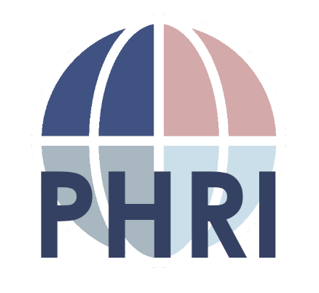What We Know
PHRI has over 35 years applied experience with health data and health data systems. Our knowledge and expertise covers the entire spectrum of the healthcare continuum:
Electronic Medical / Health Records
Medical, Pharmacy, Dental Claims; Eligibility (commercial, Medicare, Medicaid, CHIP)
Health Surveys (community, state, national)
Social Determinants of Health (e.g. education, income, employment)
Quality Measures (e.g. HEDIS, NCQA)
Cost & Utilization (e.g. HCUP)
Geospatial
What We Do
PHRI will assist you to:
Better understand your data
Acquire additional data
Integrate data into a manageable, analyzable and reportable form
Train self-sufficiency in reporting, analysis
Tools We Use
PHRI uses a variety of data management methods and tools to effectively identify, capture, manage and turn data into meaningful, actionable information
MS Project (project management)
MS SQL Server, MS Access (data management and integration)
SPSS, Python, R (data analysis)
ArcGIS (geospatial mapping)
The PHRI Process
Working closely with partners, PHRI uses a systematic and transparent approach to:
Evaluate your information needs
Document current datasets, systems and data flow
Identify data gaps
Acquire and integrate datasets
Implement analytical and reporting tools
Conduct and communicate the analysis, findings and recommendations
Provide trainings on maintenance and utilization of reporting / analysis
Example Data Projects
APA Psychologist / Psychiatrist Density Mapping
This project highlights our capacity to map multi-dimensional data to enhance impact of health indicators geographically. This example integrated state licensure, US census, US congressional district, and HRSA health professional shortage area data across all 50 US states to provide visual maps outlining workforce density.
St. Louis County, Missouri Community Health Needs Assessment
This example health status profile (HSP) as part of PHRI's CHNA process, highlights our capabilities to acquire, manage, integrate and analyze a wide variety of data from many sources. In this case, data was sourced from: St. Louis County household survey, MO/CDC Behavioral Risk Factor Surveillance System (BRFSS), MO Dept of Economic Development, MO Patient Abstract System, MO Vital Stats, Cancer registry, Infectious Disease, MO/CDC Youth Risk Behavior System (YRBS), US Census, Kaiser Health Facts.
American Lung Association of New England COPD Re-admissions Study
This study shows our capacity to utilize big data (volume) for deep analysis - using multi-year claims and eligibility data from Maine Health Data Organization (MHDO) All Payer Claims Database (APCD) to analyze COPD admissions and re-admission rates at the county level. This multi-year analysis queried nearly a half billion records of medical claim and eligibility records to show re-admission rates and principle/secondary diagnosis drivers of utilization.


